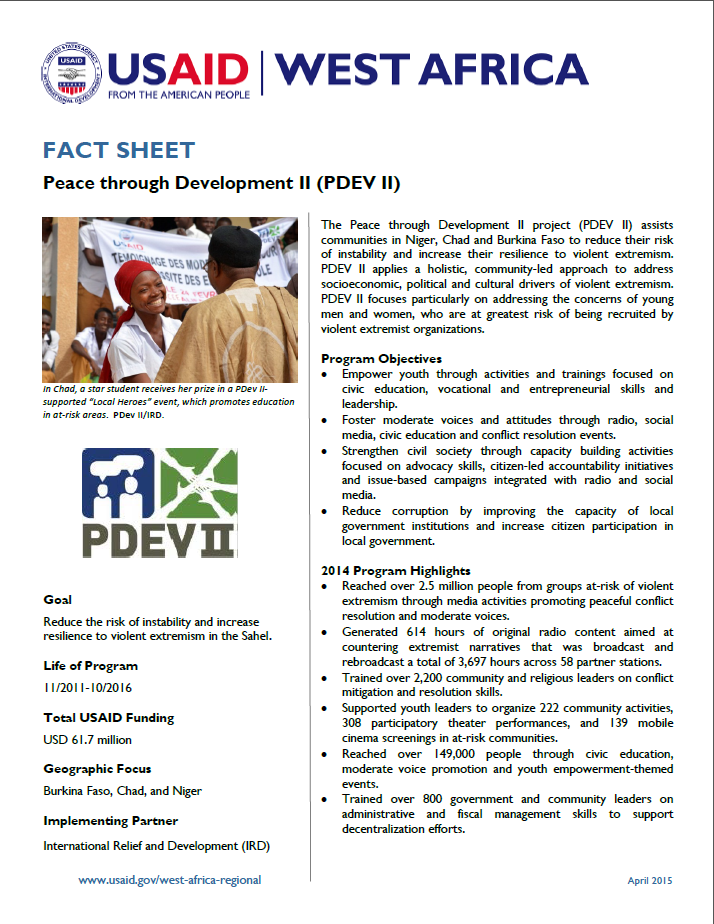Peace through Development II (PDEV II) ![]() (pdf - 302k)
(pdf - 302k)
Goal
Reduce the risk of instability and increase resilience to violent extremism in the Sahel.
Life of Program
11/2011-12/2016
Total USAID Funding
USD 61.7 million
Geographic Focus
Burkina Faso, Chad, and Niger
Implementing Partner
International Relief and Development (IRD)
The Peace through Development II project (PDEV II) assists communities in Niger, Chad and Burkina Faso to reduce their risk of instability and increase their resilience to violent extremism. PDEV II applies a holistic, community-led approach to address socioeconomic, political and cultural drivers of violent extremism. PDEV II focuses particularly on addressing the concerns of young men and women, who are at greatest risk of being recruited by violent extremist organizations.
Program Objectives
• Empower youth through activities and trainings focused on civic education, vocational and entrepreneurial skills and leadership.
• Foster moderate voices and attitudes through radio, social media, civic education and conflict resolution events.
• Strengthen civil society through capacity building activities focused on advocacy skills, citizen-led accountability initiatives and issue-based campaigns integrated with radio and social media.
• Reduce corruption by improving the capacity of local government institutions and increase citizen participation in local government.
2014 Program Highlights
• Reached over 2.5 million people from groups at-risk of violent extremism through media activities promoting peaceful conflict resolution and moderate voices.
• Generated 614 hours of original radio content aimed at countering extremist narratives that was broadcast and rebroadcast a total of 3,697 hours across 58 partner stations.
• Trained over 2,200 community and religious leaders on conflict mitigation and resolution skills.
• Supported youth leaders to organize 222 community activities, 308 participatory theater performances, and 139 mobile cinema screenings in at-risk communities.
• Reached over 149,000 people through civic education, moderate voice promotion and youth empowerment-themed events.
• Trained over 800 government and community leaders on administrative and fiscal management skills to support decentralization efforts.








Comment
Make a general inquiry or suggest an improvement.